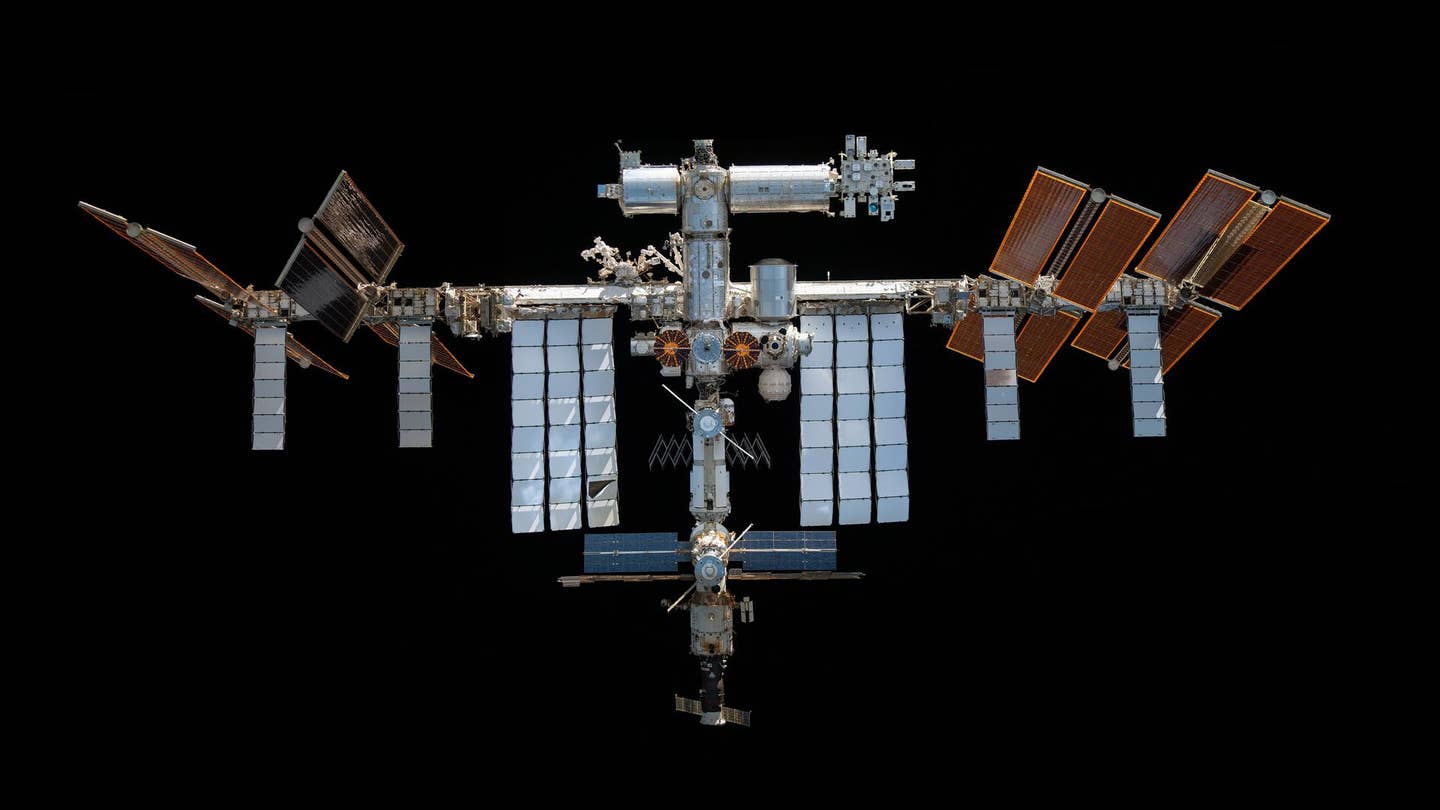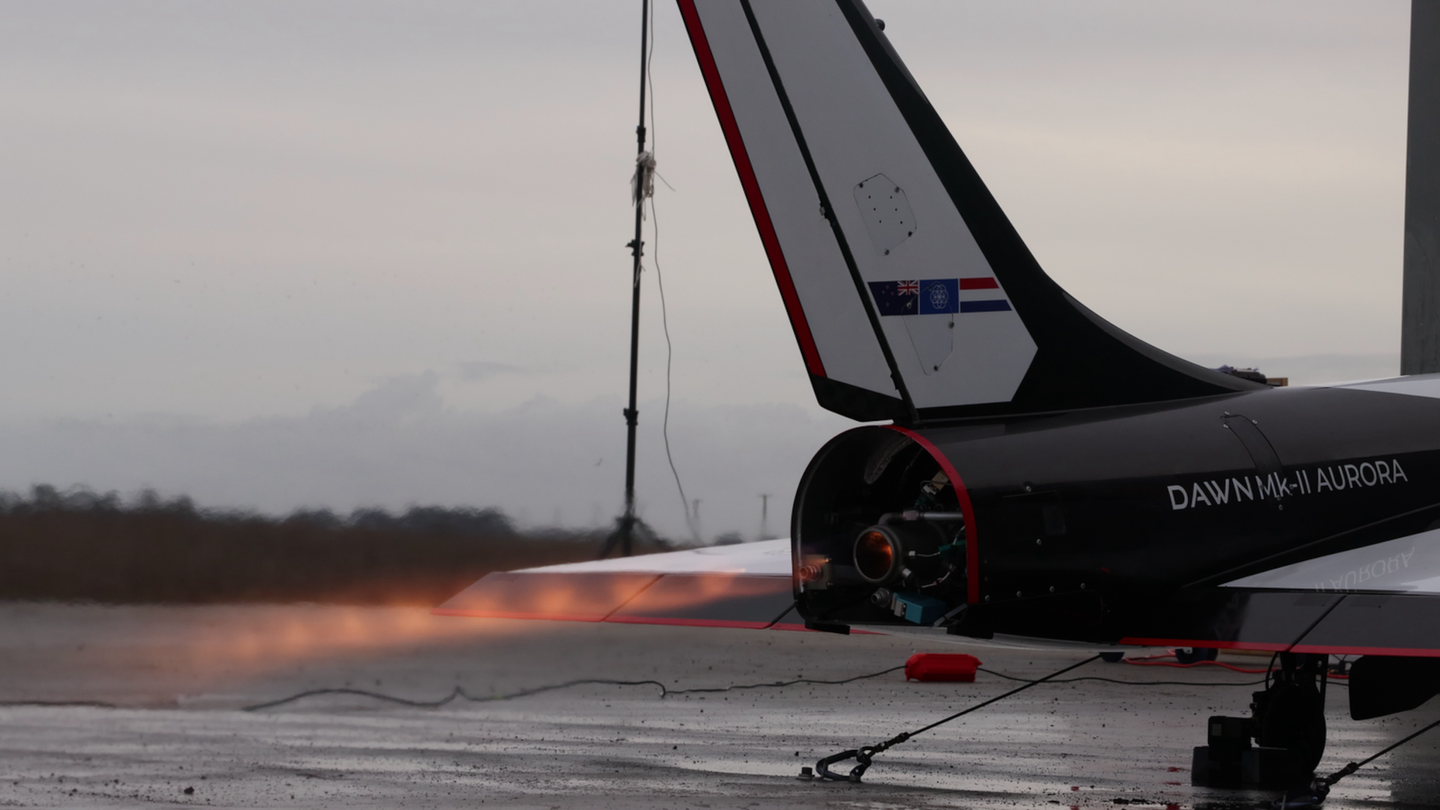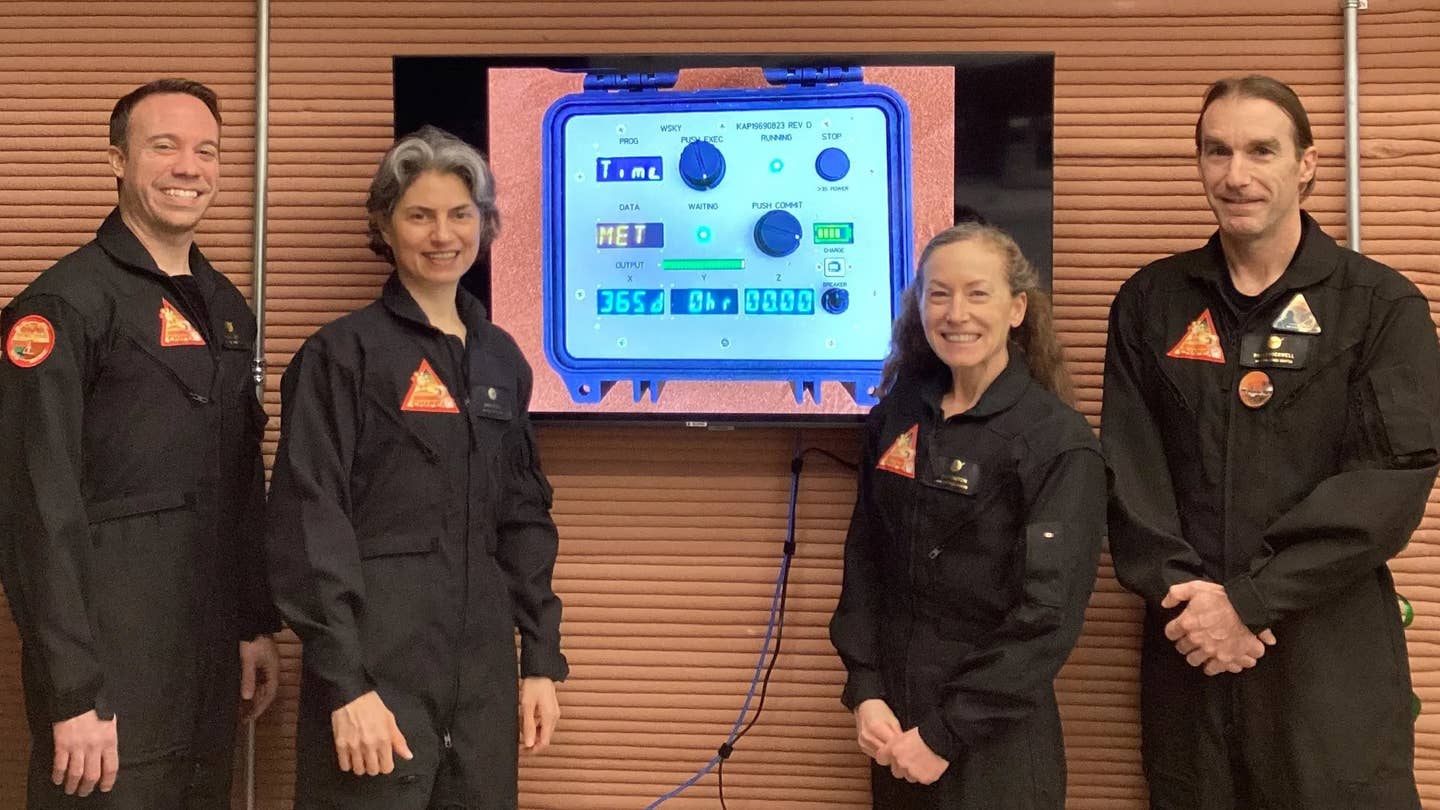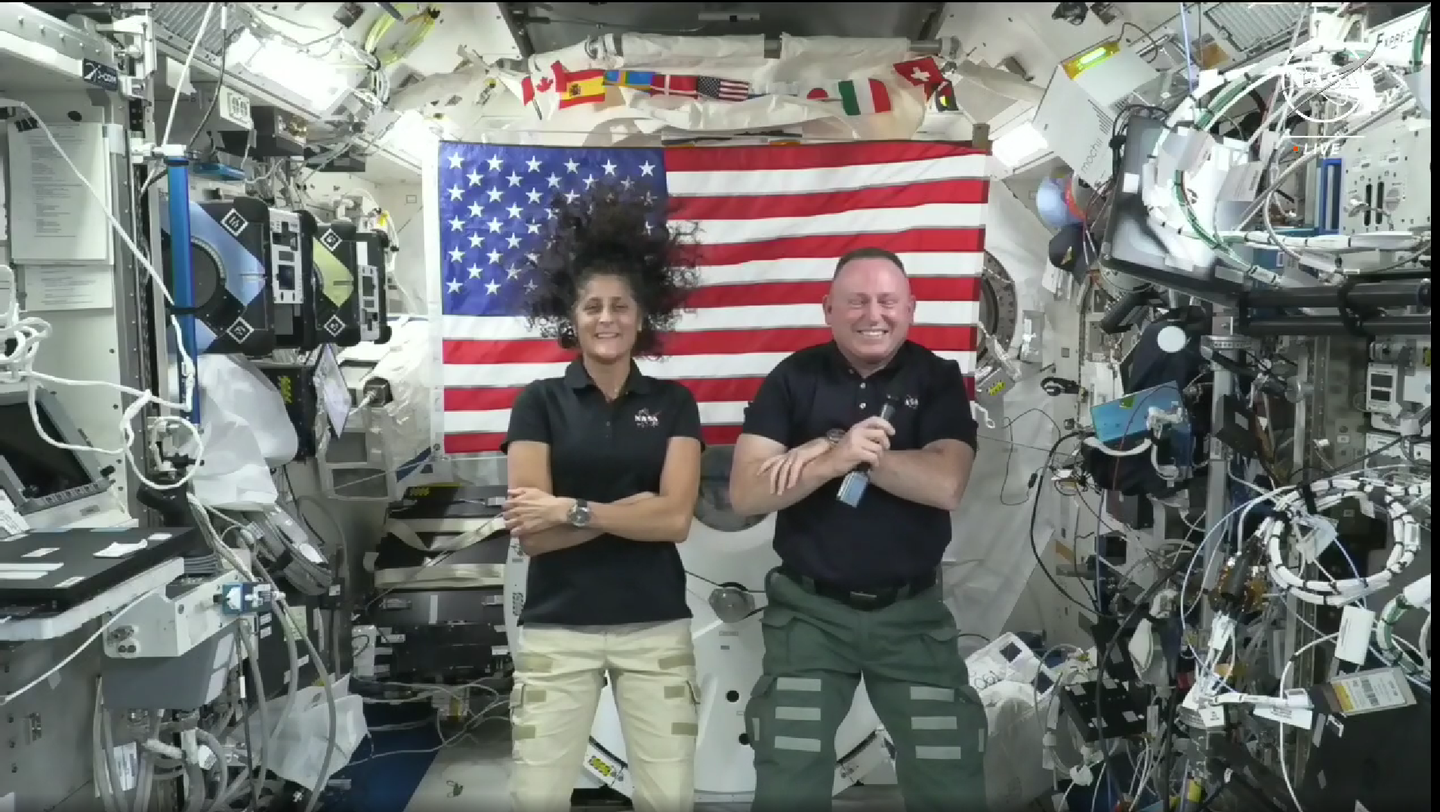Eileen Collins To Be Awarded Wright Brothers Memorial Trophy
The retired U.S. Air Force colonel and space pioneer was NASA’s first woman shuttle commander.
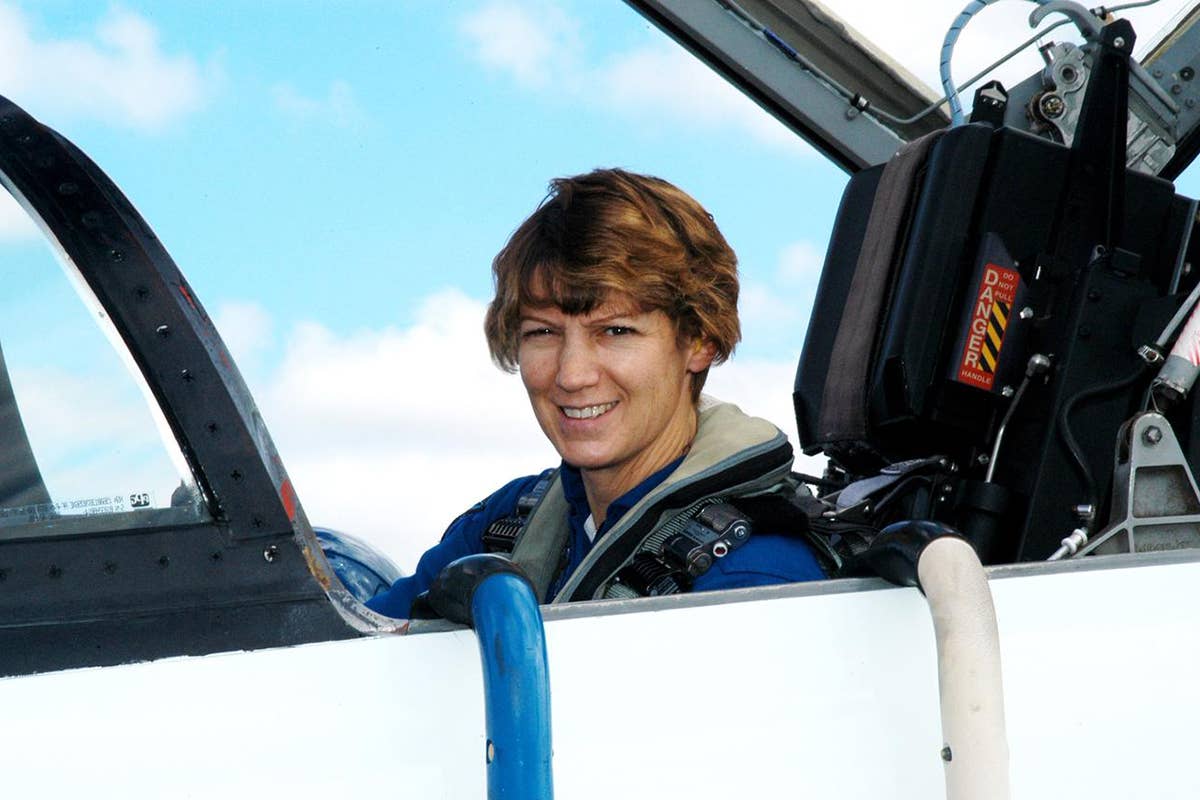
Retired U.S. Air Force Col. Eileen Collins, shown here in a T-38 in 2003, began pursuing her dreams of becoming a pilot and astronaut from an early age. [Courtesy: NASA]
Retired U.S. Air Force Col. Eileen Collins—NASA’s first woman space shuttle pilot and mission commander—has been named the 2022 recipient of the Wright Brothers Memorial Trophy, the National Aeronautic Association announced Thursday.
“For decades, Eileen Collins has been an explorer, educator, spokesperson, and champion for aerospace,” said a statement by NAA board chair, James Albaugh. “She has given tirelessly to our industry and joins an esteemed list of prior recipients.”
Collins earned her place in history in 1995 when she became NASA’s first woman shuttle pilot, successfully rendezvousing and docking with the orbiting Russian space station Mir. Four years later, she broke another barrier—becoming the first woman to command a space shuttle. During that mission, the Columbia orbiter successfully deployed the Chandra X-ray Observatory.
How It All Started
Those achievements and others can be traced directly back to Collins’ days as a fourth grader when an article in Junior Scholastic magazine about NASA’s Gemini program first sparked her dreams of becoming an astronaut. “There were no women astronauts, but that made no difference to me, I just thought, I’m going to be a lady astronaut,” Collins recalled during an interview with FLYING on Friday. “That’s what I’m going to do.”
During the next several years, Collins found part-time work around her hometown of Elmira, New York, to save up for flying lessons at Elmira Corning Regional Airport (KELM). In the summer of 1977, when Collins was 20, her CFI, A.J. Davis, who had flown F-4s during the Vietnam War, decided it was high time for Collins to solo.
“I had no idea I was going to solo that day,” she remembered. Taxiing in a Cessna 150 after coaching Collins through three touch and goes, Davis grabbed Collins’ hand on the throttle and said, “Why don’t you pull over?” Davis then radioed the tower and turned to Collins and said, “I think I’m going to get out. You don’t need me anymore.” Collins pulled off on the taxiway and “he got out and he told me ‘I want you to do three touch and goes.’”
As soon as she took off, her door popped open. “My heart skipped a beat and I just reached over and closed the door and went, OK, well, that was easy, and I kept going. It might have been open a couple of inches, but I like to say that was my first inflight emergency.”
Being Among the First
While attending Syracuse University she joined the U.S. Air Force ROTC program, which led to her selection to the first Undergraduate Pilot Training class at Vance Air Force Base to include women.
“We learned to live in a fishbowl,” she recalled. “Everything that we did—our grades, what we said, how we acted, how we responded to the testing, and the emergency procedures. We were under a microscope because it was a test program. I sort of ignored all that. And I just tried to focus on being the best pilot I could be.”
“I thought that we were treated very, fairly along with the guys,” Collins said. “They weren't harder on us. And they weren't easier on us in the training portion.”
In addition to achieving post graduate degrees from Stanford and Webster universities, Collins served valuable stints as a C-141 instructor pilot at Travis Air Force Base and as an assistant professor and T-41 instructor pilot at the U.S. Air Force Academy.
That led to Collins being among the first women accepted to Air Force Test Pilot School at Edwards Air Force Base.
As a student there, she gained a reputation as a cool, level-headed test pilot—and in 1990, Collins became the school’s second woman ever to graduate. That same year NASA selected her for the astronaut program, joining the astronaut corps in 1991 and fulfilling that lifelong dream.
“Eileen Collins has blazed trails, broken barriers, and achieved greatly at every step during her consequential career,” said NAA president Greg Principato. “Not satisfied with that, Eileen has continued to serve and inspire others in all kinds of ways. Her service to aviation and to her country embodies the qualities the Wright Trophy was created to honor. It will be an honor to present the Wright Trophy to her.”
The National Aeronautic Association aims to foster opportunities for participating in aviation and to promote public understanding of the importance of aviation and space flight. As a Wright Brothers Memorial Trophy recipient, Collins joins a list that stretches back to 1948, including Charles Lindbergh, Jimmy Doolittle, Donald Douglas, Kelly Johnson, and Joe Sutter—as well as fellow astronauts Neil Armstrong, Charles Bolden, Eugene Cernan, Michael Collins, John Glenn, and Thomas Stafford.
“It's a great honor, first of all, and I thank the selection board for considering me.” Collins said. Always mindful of her humility, she said she was happy that a woman space shuttle pilot and commander is being recognized for the first time, adding “I would be just as happy if it was someone else, versus me.”
“I think that I've learned to sometimes separate myself from the woman commander title. That's how I maintain my humility. And that's how I keep the Eileen, that grew up in Elmira, New York.
Three Things for Aspiring Pilots and Astronauts
For the girls and young women who are considering a career as a pilot or astronaut, Collins recommends three things.
“You don't have to be a straight-A student—but you should focus on your studies and learning. The second thing I recommend is reading books. It's important to read books on all kinds of topics.” Collins said when she was young she read history books about World War II and Korean War pilots and even science fiction, to explore the possibilities.
Collins’ third piece of guidance is to “get involved in activities, whether it's sports, or Girl Scouts, or clubs, or church activities—maybe doing service work in your community. Pick whatever you like—just something where you're out among people. You learn leadership skills that way.”
She said that everything she’s done throughout her career was driven by her love for aviation. “I love being a pilot. I love to fly, I love to explore,” Collins said. I hope I can live up to the expectations of the award. I hope that I can live up to that, because I feel like I still have a lot more to give.”
Collins will be presented with the Wright Trophy at the Aero Club of Washington’s 74th Annual Wright Memorial Dinner on December 16, in Washington, D.C.

Subscribe to Our Newsletter
Get the latest FLYING stories delivered directly to your inbox

